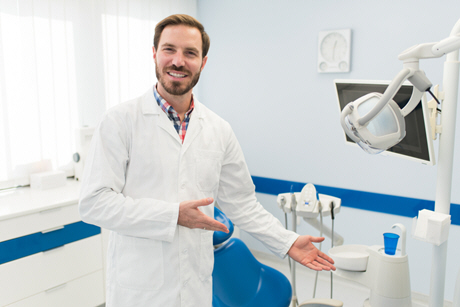Introduction
Andropause, often referred to as male menopause, is a condition characterized by a gradual decline in testosterone levels in aging men. This phenomenon has been increasingly recognized as a significant health concern due to its potential to affect various aspects of men's health, including sleep patterns. Over the past two decades, numerous studies have explored the relationship between andropause and sleep disturbances in American males. This article aims to synthesize the findings of these longitudinal studies to provide a comprehensive understanding of how andropause impacts sleep and what this means for men's health.
The Nature of Andropause
Andropause is marked by a decline in testosterone, which typically begins in men around the age of 40. Unlike the more abrupt hormonal changes experienced by women during menopause, andropause is a gradual process that can span many years. Symptoms can include fatigue, decreased libido, mood swings, and sleep disturbances. The latter has become a focal point of research due to its significant impact on overall health and quality of life.
Longitudinal Studies on Andropause and Sleep
Over the past 20 years, several longitudinal studies have been conducted to examine the relationship between andropause and sleep patterns in American males. These studies have consistently shown that as testosterone levels decline, men are more likely to experience sleep disturbances, including insomnia and sleep fragmentation.
One notable study conducted by the National Institute on Aging followed a cohort of 1,500 American men aged 40 to 70 over a period of 10 years. The results indicated that men with lower testosterone levels were significantly more likely to report poor sleep quality, with a 30% increase in the incidence of insomnia compared to their counterparts with higher testosterone levels.
Another study, published in the Journal of Clinical Endocrinology & Metabolism, tracked sleep patterns in 800 men over a 15-year period. The findings revealed that the severity of sleep disturbances increased with the progression of andropause. Men in the later stages of andropause reported more frequent awakenings during the night and a greater difficulty in falling asleep.
Mechanisms Linking Andropause to Sleep Disturbances
The mechanisms by which andropause affects sleep are multifaceted. Testosterone plays a crucial role in regulating the sleep-wake cycle, and its decline can lead to disruptions in this cycle. Additionally, the symptoms of andropause, such as mood swings and fatigue, can exacerbate sleep problems.
Research has also indicated that the decline in testosterone may affect the production of other hormones, such as melatonin, which is essential for sleep regulation. Furthermore, the physical changes associated with aging, such as increased body fat and decreased muscle mass, can contribute to sleep apnea, a condition that is more prevalent in men with low testosterone levels.
Implications for Men's Health
The impact of andropause on sleep patterns has significant implications for men's health. Chronic sleep disturbances can lead to a range of health issues, including cardiovascular disease, diabetes, and mental health disorders such as depression and anxiety. Therefore, understanding and addressing the sleep disturbances associated with andropause is crucial for improving the overall health and well-being of American males.
Management and Treatment Options
Fortunately, there are several management and treatment options available for men experiencing sleep disturbances due to andropause. Hormone replacement therapy (HRT) has been shown to be effective in alleviating symptoms by restoring testosterone levels. However, HRT is not suitable for all men and should be considered carefully in consultation with a healthcare provider.
Non-hormonal treatments, such as cognitive-behavioral therapy for insomnia (CBT-I), can also be effective in improving sleep quality. Lifestyle modifications, including regular exercise, a balanced diet, and maintaining a consistent sleep schedule, can further help mitigate the impact of andropause on sleep.
Conclusion
The longitudinal studies conducted over the past two decades have provided valuable insights into the relationship between andropause and sleep patterns in American males. As testosterone levels decline with age, men are more likely to experience sleep disturbances, which can have significant implications for their overall health. By understanding these connections and exploring effective management and treatment options, healthcare providers can better support men in navigating the challenges of andropause and improving their quality of life.
Contact Us For A Fast And Professional Response

- Andropause: Understanding Male Menopause and Its Impact on American Men's Health [Last Updated On: February 18th, 2025] [Originally Added On: February 18th, 2025]
- Managing Andropause: Key Supplements and Personalized Approaches for American Men [Last Updated On: March 17th, 2025] [Originally Added On: March 17th, 2025]
- Andropause: Dispelling Myths and Understanding Realities for American Males [Last Updated On: March 18th, 2025] [Originally Added On: March 18th, 2025]
- Managing Andropause: Diet, Exercise, Stress, Sleep, and Health Check-ups for American Men [Last Updated On: March 18th, 2025] [Originally Added On: March 18th, 2025]
- Andropause: Understanding Male Menopause and Embracing Life's New Chapter [Last Updated On: March 18th, 2025] [Originally Added On: March 18th, 2025]
- Andropause and Cognitive Health: Strategies for American Men [Last Updated On: March 19th, 2025] [Originally Added On: March 19th, 2025]
- Understanding Andropause: Symptoms, Diagnosis, and Management Strategies for Men [Last Updated On: March 20th, 2025] [Originally Added On: March 20th, 2025]
- Navigating Emotional Challenges of Andropause: Support and Strategies for American Men [Last Updated On: March 20th, 2025] [Originally Added On: March 20th, 2025]
- Managing Andropause: Importance of Regular Check-ups for American Men's Health [Last Updated On: March 20th, 2025] [Originally Added On: March 20th, 2025]
- Andropause and Prostate Health: Understanding the Link for Aging American Males [Last Updated On: March 20th, 2025] [Originally Added On: March 20th, 2025]
- Andropause and Diabetes: Understanding Risks and Management Strategies for American Males [Last Updated On: March 21st, 2025] [Originally Added On: March 21st, 2025]
- Andropause: Navigating Social Impacts and Seeking Support in American Men [Last Updated On: March 21st, 2025] [Originally Added On: March 21st, 2025]
- Andropause in American Males: Strategies for Maintaining Muscle Mass and Strength [Last Updated On: March 22nd, 2025] [Originally Added On: March 22nd, 2025]
- Andropause: Understanding Symptoms, Impact on Self-Esteem, and Treatment Options for American Men [Last Updated On: March 22nd, 2025] [Originally Added On: March 22nd, 2025]
- Andropause and Depression: Recognizing Signs and Seeking Treatment in American Men [Last Updated On: March 23rd, 2025] [Originally Added On: March 23rd, 2025]
- Andropause Effects on Skin: Skincare Strategies for American Men [Last Updated On: March 23rd, 2025] [Originally Added On: March 23rd, 2025]
- Navigating Andropause: Building Support Networks for American Men's Health [Last Updated On: March 24th, 2025] [Originally Added On: March 24th, 2025]
- Andropause: Navigating Psychological Impacts with Mental Health Support in American Men [Last Updated On: March 24th, 2025] [Originally Added On: March 24th, 2025]
- Andropause: Understanding and Managing Male Menopause in American Men [Last Updated On: March 24th, 2025] [Originally Added On: March 24th, 2025]
- Managing Andropause: Strategies to Combat Fatigue and Enhance Life Quality [Last Updated On: March 24th, 2025] [Originally Added On: March 24th, 2025]
- Mindfulness: A Holistic Approach to Managing Andropause in American Men [Last Updated On: March 24th, 2025] [Originally Added On: March 24th, 2025]
- Andropause: Family Support Crucial for Managing Male Menopause Symptoms [Last Updated On: March 24th, 2025] [Originally Added On: March 24th, 2025]
- Andropause and Hair Loss: Understanding Impacts and Exploring Treatment Options [Last Updated On: March 24th, 2025] [Originally Added On: March 24th, 2025]
- Andropause: Managing Symptoms to Balance Work and Health in American Men [Last Updated On: March 24th, 2025] [Originally Added On: March 24th, 2025]
- Andropause and Immune Health: Strategies for American Men to Boost Immunity [Last Updated On: March 25th, 2025] [Originally Added On: March 25th, 2025]
- Andropause and Cholesterol: Managing Health in Aging American Males [Last Updated On: March 25th, 2025] [Originally Added On: March 25th, 2025]
- Essential Foods for Managing Andropause: A Guide for American Males [Last Updated On: March 25th, 2025] [Originally Added On: March 25th, 2025]
- Andropause Impact on Vision: Proactive Care for Aging American Males [Last Updated On: March 25th, 2025] [Originally Added On: March 25th, 2025]
- Andropause and Kidney Health: Understanding Impacts and Management Strategies for American Men [Last Updated On: March 25th, 2025] [Originally Added On: March 25th, 2025]
- Navigating Andropause: Emotional Challenges and Strategies for American Men [Last Updated On: March 26th, 2025] [Originally Added On: March 26th, 2025]
- Managing Andropause: Stress Reduction Strategies for American Men's Health [Last Updated On: March 26th, 2025] [Originally Added On: March 26th, 2025]
- Andropause and HRT: Benefits, Risks, and Management for American Men [Last Updated On: March 26th, 2025] [Originally Added On: March 26th, 2025]
- Andropause and Respiratory Health: Strategies for American Males [Last Updated On: March 26th, 2025] [Originally Added On: March 26th, 2025]
- Andropause and Joint Health: Symptoms and Management Strategies for American Men [Last Updated On: March 26th, 2025] [Originally Added On: March 26th, 2025]
- Andropause Management: Benefits of Regular Exercise for American Men's Health [Last Updated On: March 26th, 2025] [Originally Added On: March 26th, 2025]
- Andropause in American Men: Symptoms, Diagnosis, and Management Strategies [Last Updated On: March 26th, 2025] [Originally Added On: March 26th, 2025]
- Andropause and Memory: Strategies for American Males to Enhance Cognitive Health [Last Updated On: March 27th, 2025] [Originally Added On: March 27th, 2025]
- Hydration's Crucial Role in Managing Andropause Symptoms in American Men [Last Updated On: March 27th, 2025] [Originally Added On: March 27th, 2025]
- Andropause and Sleep: Managing Symptoms Through Better Sleep Hygiene in American Men [Last Updated On: March 27th, 2025] [Originally Added On: March 27th, 2025]
- Andropause in American Men: Importance of Tailored Screenings and Holistic Management [Last Updated On: March 27th, 2025] [Originally Added On: March 27th, 2025]
- Andropause and Digestive Health: Strategies for American Males [Last Updated On: March 27th, 2025] [Originally Added On: March 27th, 2025]
- Andropause and Dental Health: Risks and Strategies for American Males [Last Updated On: March 27th, 2025] [Originally Added On: March 27th, 2025]
- Andropause: Understanding Male Menopause and Its Impact on Energy Levels in American Men [Last Updated On: March 27th, 2025] [Originally Added On: March 27th, 2025]
- Andropause and Thyroid Function: Interplay and Clinical Implications for American Men [Last Updated On: March 27th, 2025] [Originally Added On: March 27th, 2025]
- Andropause and Blood Pressure: Monitoring Strategies for American Males [Last Updated On: March 27th, 2025] [Originally Added On: March 27th, 2025]
- Andropause and Hearing Loss: Understanding the Link in American Males [Last Updated On: March 28th, 2025] [Originally Added On: March 28th, 2025]
- Andropause: Managing Psychological Impact with Mental Health Days for American Males [Last Updated On: March 28th, 2025] [Originally Added On: March 28th, 2025]
- Andropause and Liver Health: Managing Hormonal Changes in American Males [Last Updated On: March 28th, 2025] [Originally Added On: March 28th, 2025]
- Andropause: Understanding Its Impact on Men's Motivation and Well-being [Last Updated On: March 28th, 2025] [Originally Added On: March 28th, 2025]
- Andropause: Navigating Male Menopause and Maintaining Confidence in American Men [Last Updated On: March 29th, 2025] [Originally Added On: March 29th, 2025]
- Andropause: Community Support Enhances Men's Health and Well-being in America [Last Updated On: March 29th, 2025] [Originally Added On: March 29th, 2025]
- Andropause and Emotional Intelligence: Enhancing Men's Emotional Health in America [Last Updated On: March 31st, 2025] [Originally Added On: March 31st, 2025]
- Hobbies: A Holistic Approach to Managing Andropause in American Men [Last Updated On: April 1st, 2025] [Originally Added On: April 1st, 2025]
- Andropause: Navigating Male Menopause with Goal Setting and Support [Last Updated On: April 2nd, 2025] [Originally Added On: April 2nd, 2025]
- Andropause in American Men: Impacts on Creativity and Strategies for Mitigation [Last Updated On: April 2nd, 2025] [Originally Added On: April 2nd, 2025]
- Andropause and Allergies: Managing Dual Health Challenges in American Males [Last Updated On: April 3rd, 2025] [Originally Added On: April 3rd, 2025]
- Andropause: Understanding Its Impact on American Men's Sense of Purpose and Identity [Last Updated On: April 7th, 2025] [Originally Added On: April 7th, 2025]
- Andropause and Time Management: Strategies for American Men's Health and Productivity [Last Updated On: April 8th, 2025] [Originally Added On: April 8th, 2025]
- Andropause and Skin Sensitivity: Causes, Symptoms, and Management Strategies for American Males [Last Updated On: April 8th, 2025] [Originally Added On: April 8th, 2025]
- Technology's Role in Managing Andropause for American Men: Telemedicine, Wearables, AI [Last Updated On: April 9th, 2025] [Originally Added On: April 9th, 2025]
- Andropause Effects on Nail Health: Nutrition, Hydration, and Care Strategies for American Males [Last Updated On: April 9th, 2025] [Originally Added On: April 9th, 2025]
- Andropause and Foot Health: Tips for American Males [Last Updated On: April 9th, 2025] [Originally Added On: April 9th, 2025]
- Andropause Effects on Hand Health: Strategies for American Males [Last Updated On: April 10th, 2025] [Originally Added On: April 10th, 2025]
- Andropause: Enhancing Life Quality Through Lifelong Learning for American Men [Last Updated On: April 10th, 2025] [Originally Added On: April 10th, 2025]
- Andropause Impact on Eye Health: Risks, Prevention, and Care for American Males [Last Updated On: April 10th, 2025] [Originally Added On: April 10th, 2025]
- Volunteering: A Holistic Approach to Managing Andropause in American Men [Last Updated On: April 11th, 2025] [Originally Added On: April 11th, 2025]
- Travel as Therapy: Managing Andropause in American Men [Last Updated On: April 11th, 2025] [Originally Added On: April 11th, 2025]
- Andropause: Managing Declining Testosterone and Preserving Adventure in American Men [Last Updated On: April 13th, 2025] [Originally Added On: April 13th, 2025]
- Andropause: Financial Planning Strategies for American Men's Health and Well-being [Last Updated On: April 16th, 2025] [Originally Added On: April 16th, 2025]
- Andropause: Navigating Male Menopause and Redefining Identity in American Men [Last Updated On: April 16th, 2025] [Originally Added On: April 16th, 2025]
- Andropause Impact on Throat Health: Symptoms, Management, and Prevention Strategies for American Males [Last Updated On: April 17th, 2025] [Originally Added On: April 17th, 2025]
- Music Therapy: A Holistic Approach to Managing Andropause in American Men [Last Updated On: April 18th, 2025] [Originally Added On: April 18th, 2025]
- Andropause Impact on Men's Humor and Psychological Well-being [Last Updated On: April 18th, 2025] [Originally Added On: April 18th, 2025]
- Andropause Effects on Nasal Health in American Men: Symptoms and Management Strategies [Last Updated On: April 19th, 2025] [Originally Added On: April 19th, 2025]
- Andropause Impact on Tongue Health: Symptoms and Management for American Males [Last Updated On: April 19th, 2025] [Originally Added On: April 19th, 2025]
- Andropause and Ear Health: Understanding Impacts and Managing Hearing Loss in American Males [Last Updated On: April 19th, 2025] [Originally Added On: April 19th, 2025]
- Art Therapy's Role in Managing Andropause Symptoms in American Men [Last Updated On: April 19th, 2025] [Originally Added On: April 19th, 2025]
- Andropause: Navigating Male Menopause with Social Support and Professional Help [Last Updated On: April 20th, 2025] [Originally Added On: April 20th, 2025]
- Understanding Andropause: Symptoms, Diagnosis, and Treatment for American Males [Last Updated On: April 21st, 2025] [Originally Added On: April 21st, 2025]
- Andropause in American Men: Understanding Mental Health Impacts and Seeking Support [Last Updated On: April 22nd, 2025] [Originally Added On: April 22nd, 2025]

















